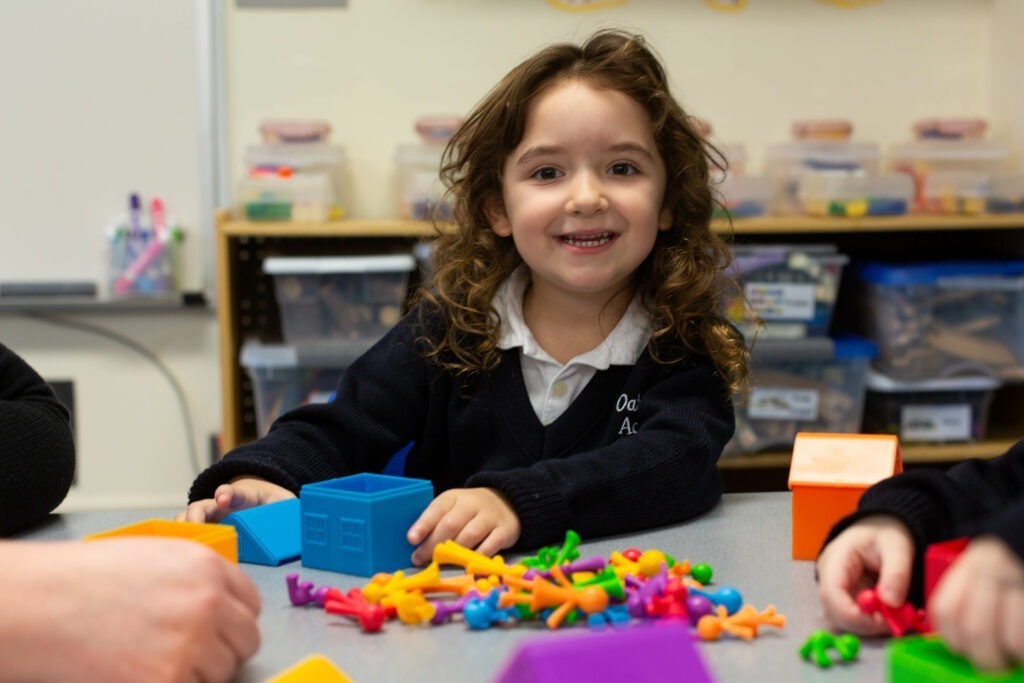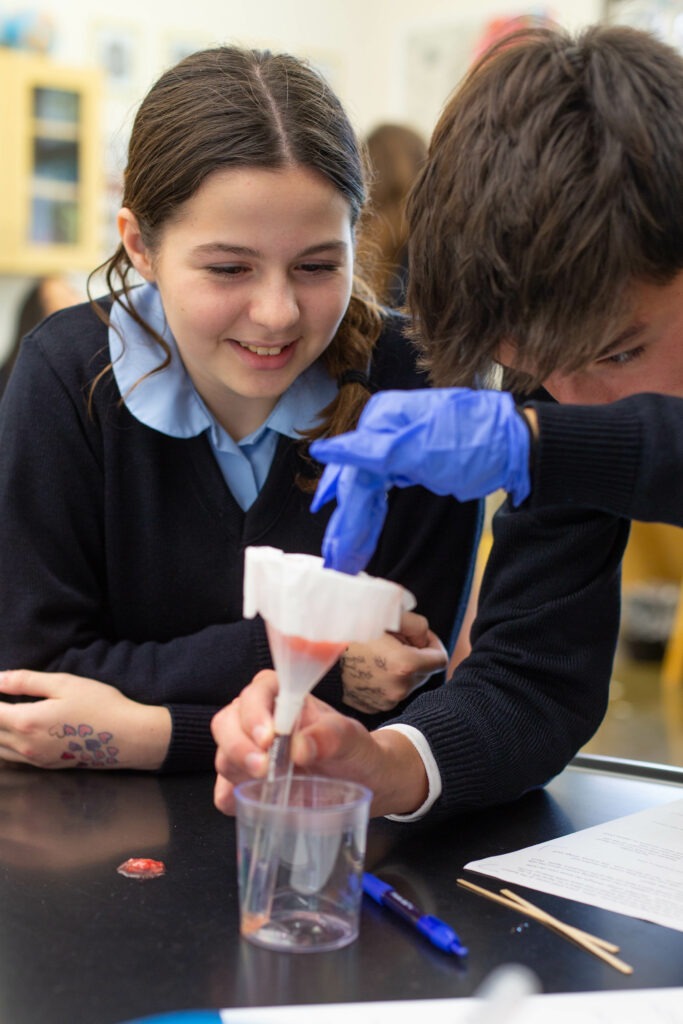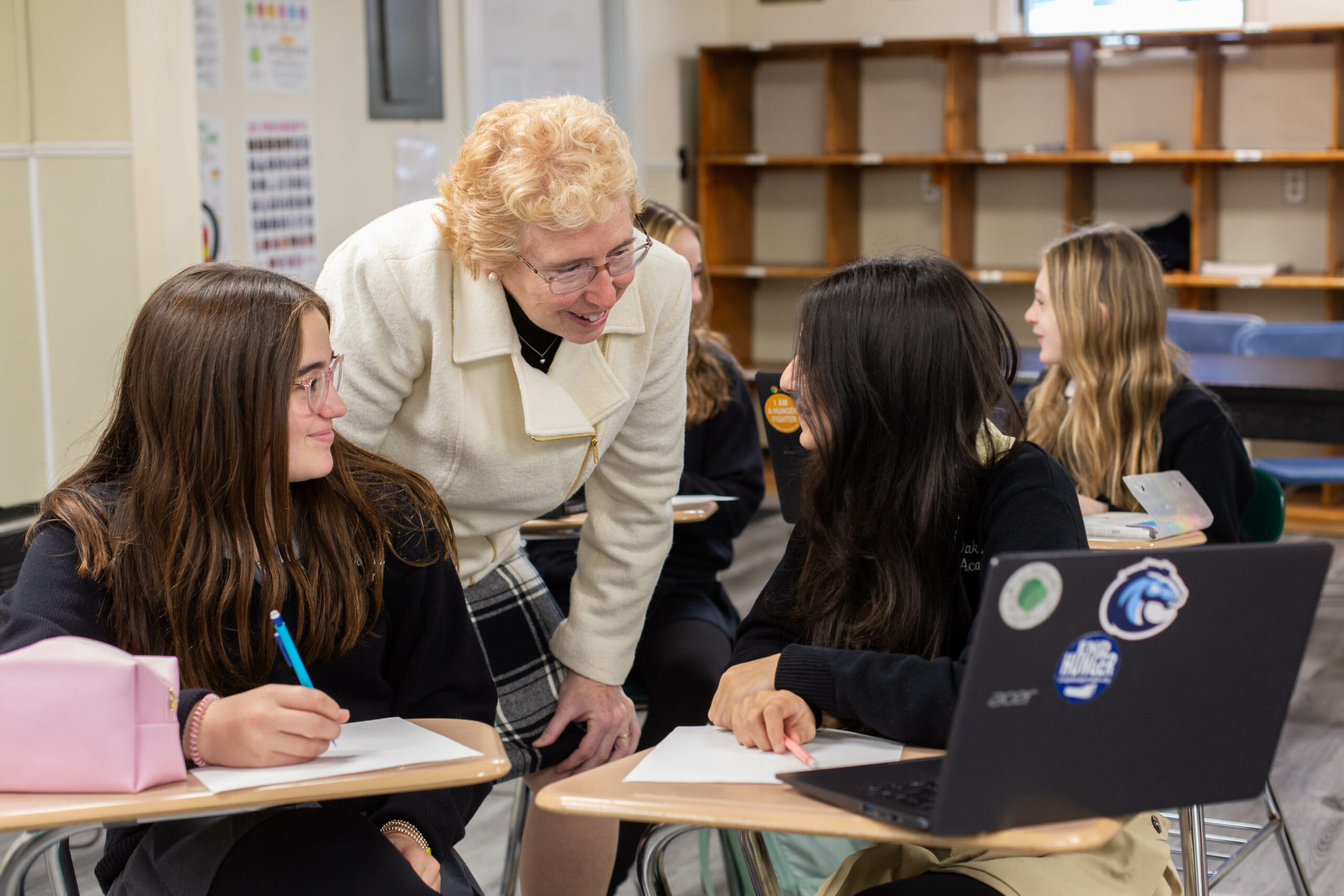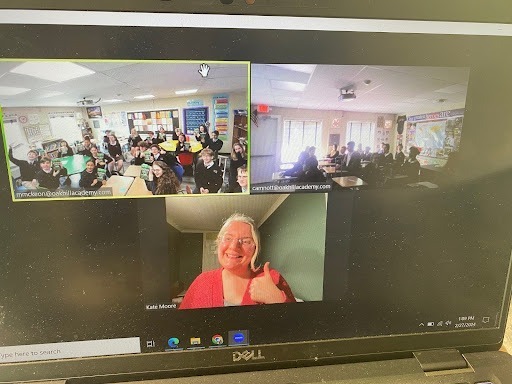Five Keys to Enhance Student Intrinsic Motivation
We often hear that many students today are bored and not motivated in Pre-K – 12 schools. We have found that extrinsic motivation such as grades and rewards have little effect and are short-lived. Today, learners of all ages have diversions apart from school, with lives filled with social commitments and online activities.
Schools, such as Oak Hill Academy in Lincroft, N.J., have found that student intrinsic motivation is the key to true and deep learning. Teachers know that children learn in different ways and have a variety of strengths. The following five keys have been found to be effective in meeting student needs by placing the student in the center of a learning practice that focuses on a personalized approach.
Autonomy – Young people have a great need to accepted for who they are. Each individual has a unique personality and learning preference, and schools can help by letting the individual have self-directed goals. Permitting self-awareness adds to the person’s ability to cope and to make wise decisions. When teachers recognize the individual, the student’s motivation is piqued. They become more creative and curious as well. Their contribution to the group builds trust and friendship, while allowing for a great deal of ownership of their natural gifts. So, having autonomy contributes to a person’s identity – a multifaceted identity containing traits that are so unique that the individual sees themself as a person of value and thus becomes motivated to move forward with confidence and self-assurance.
Independence – Almost from birth, people strive for independence. Children struggle to speak and to take those first wonderful steps. Toddlers soon proclaim, “I can do it myself!” This tendency grows and is life-long. Unless physically or mentally not capable, even older citizens fight for independence in their later years. Schools must give students opportunity to exercise this trait for self-direction. Acting for oneself helps grow thinking for self, experimenting, researching, looking for alternatives, and becoming self-reliant. Given this opportunity, mistakes are considered part of the process, and making corrections is part of the road to success. Schools that allow for independent thinking find that a student’s motivation grows as a natural part of the learning path.

The benefits are varied and include the development of:
- Good time management
- Setting better boundaries
- Listing pros and cons
- Brainstorming and making a timeline
- Managing emotions
- Keeping a positive outlook
- Managing peer pressure
- Facing adversity and becoming resilient
Oak Hill teachers craft their curriculum to emphasize Autonomy and Independence, attributes that help students develop Choice, Goals, and Belonging – the other keys to student intrinsic motivation.
Choice – Most what is done in schools is either mandated by educational leaders or is selected by curriculum planners.
Students have a sense of free will and when given an opportunity will make well thought-out plans when guided by adults or fellow peers. Children not only get great pleasure, but are challenged more when they have choice of what they study and research.
Having choice means that you are in the driver’s seat, and you can actively and intentionally pursue different options. We call this the “power of choice,” and whether the outcome is wanted or unwanted, there is something special about this selection ability. Recognizing that you have the power to choose is liberating. It means that you have the ability to be an independent thinker. Planning and choosing by the student permits him or her to recognize the impact of what present actions have on future endeavors. Having this ability gives the students the awareness of what talents one might possess. Making choices often opens new doors of opportunity and success. Even poor choices will lead the motivated person to change directions and head toward better surroundings. If you, as a student, are doing projects that you have chosen and which matter, you will automatically move forward. As usual, the first step is the hardest, but after that, challenges become less scary. Success builds on success! By blending student choice with their curriculum outcomes, teachers can weave this attribute into their planning.
Goals – Setting goals has been found to go hand in hand with making choices. What is our destination and what is our path to move forward? Goals tell us how we’re doing. Students who have goals for what they want to study, where they want to study, and how they want to study feel free and more motivated to learn.

Belonging – Humans are social animals with the need to belong. In schools, where students spend at least six hours a day, it is extremely important that the individual feels that they are a valued member of the school community. Making friends and the feeling of being a contributing classmate promotes a climate that is creative, productive, and supportive. Knowing that we are in this together builds a strong culture of commitment where there is a sense of accomplishment, satisfaction, and competence. Schools can develop this feeling of belonging by providing opportunities for collaborative learning and student projects. Students solving problems and displaying their work extends pride and ownership. Belonging to an activity, a sports team, or a study group brings students together to share ideas and celebrate successes. Schools can also promote free time to play in physical education classes and on playgrounds which helps reduce fatigue, stress, and boredom. Buddy systems and programs such as celebrating our country’s many heritages help increase our sense of belonging. These all bring about a sense of personal growth and togetherness.
These five keys within a student-centered curriculum create not only an intrinsically motivated learner, but also a happy child. What better environment could you ask for?
Oak Hill Academy is a NJ private school that is co-educational, independent, nonsectarian, and nonprofit for grades pre-kindergarten through eight. Oak Hill Academy is dedicated to a traditional, challenging, and caring learning environment that encourages comprehensive thought processes and deep understandings; thus promoting the wholesome intellectual, emotional, moral, and physical lifetime growth of our students. If you want to learn more about what makes Oak Hill Academy one of the best private school in NJ, visit us online at www.oakhillacademy.com , or subscribe to our mailing list to be notified when we post more topics.







